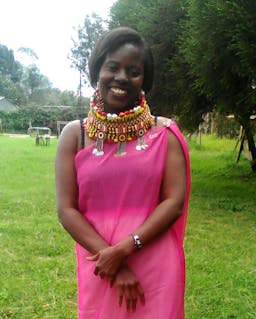Can a short visit save a life?
May 28, 2019
Story
In October 2014, I received a phone call from my village chief. He told me, a wife to a son of one of the clan leaders had died. She died while giving birth to twins.
Now in my village of Bukomolo in Kibuku district, eastern Uganda, it’s a rule to inform all sons and daughters of the soil living in cities about the important activities in the community, be it burial or customary ceremony, and in most cases one should attend, if not pay a fine in cash as per the weight of the ceremony.
The news of this death came a few weeks after I had returned from the burial of another mother who also died in labour.
“But what could be the problem?” I asked myself. This question pondered in my mind all through going back for burial. It was quite a sad moment seeing Mama Franca as we called her lying closed in death with her two dead babies. Besides the bodies sat her husband and the other two older children helpless, as tiers ran down from their small eyes. The older children are of two (2) and of four (4) years.
Many women were seen perplexed wrapping their arms around their necks siting under tree shades. One could think they are the next to die. Men attributed the death to culture and traditional taboos. That, perhaps the family failed to fulfill the rituals to welcome the twins.
Before burying the dead, the community leaders including the village chief suggested finding a solution to save the lives of expectant mothers. Some of the solutions included traditional cleansing, and consulting of traditional herbalists.
“This can’t be” I told them. “Can we look at other options” I requested. I told them that the cause of death of our mothers was nothing rather than failure to go for maternity care in health facilities. My suggestion seemed an abomination in their ears and within minutes everyone had isolated me. But I repeated over and over, day after day and month after month and by the month of May last year the community leaders invited me to talk more about my suggestion and how it works.
In my village however, one has to walk at least 10 miles to search for healthcare and mama Franca did not have access to routine maternity care. She depended on African herbs. She was also assisted by her mother who had no skills to save her and the twins. She developed infections causing her to breed to death.
Among the suggestions agreed was to solve the issue of distance. The community collectively gave one acre of land to build a village clinic and also made bricks – the land and the bricks were handed over to me and they told me “You will only come back to us with a finished clinic.”
I saw the determination of my people with that bond of sympathy and I said, ‘each of us comes from a short visit not knowing why.’ What had brought us together was burial but at the end of it all I imagined the many lives to be saved just from the boldness i took to tell them the truth.
In my closet I prayed to God for direction and with support from fiends and well-wishers, in January this year, I got funds to start on the construction and now we are in the final stages of completing. I have now made this activity as one of the components of Grace Works Initiative (GWI) an organisation I founded to promote healthcare for the underprivileged women and children in Uganda. The remaining challenge is stocking and operational costs and I encourage everyone to join for the sake of the countless mothers dying in my community.
The clinic will improve women’s access to quality healthcare and reduce maternal mortality rates from the community. The community has a population of about 20,000 people.
My district Kibuku which was carved out of Pallisa district lacks adequate health facilities.




